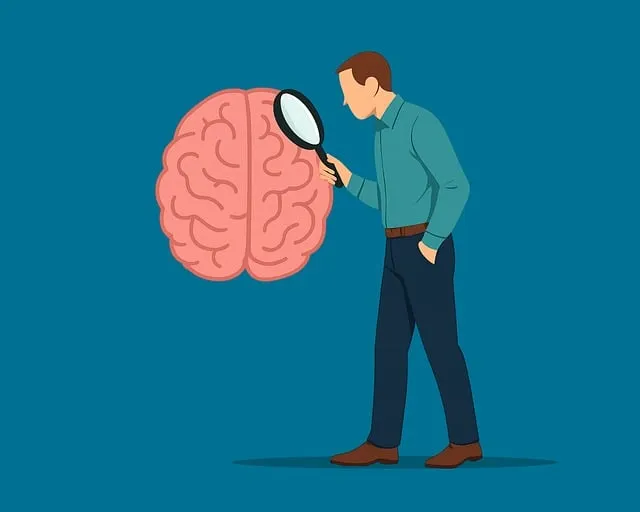Golden Kaiser Permanente stands out in mental health support with its Crisis Intervention Team (CIT) programs, offering specialized training to staff and fostering better emotional intelligence across communities. Their comprehensive approach focuses on de-escalation, communication, and resilience building through workshops and evidence-based practices. By equipping individuals with coping strategies and promoting empathy, Golden Kaiser Permanente enhances crisis management and long-term emotional well-being for both patients and healthcare professionals at their mental health facility.
Crisis intervention team (CIT) training is a critical component of ensuring safe and effective care in mental health facilities. This comprehensive guide explores the essential role of CITs, with a special focus on Golden Kaiser Permanente’s contributions to training and support. We delve into key components of successful programs, practical strategies for team building, and methods for evaluating their impact. Understanding these elements is vital for optimizing patient outcomes at mental health facilities like Golden Kaiser Permanente.
- Understanding Crisis Intervention Teams: A Vital Resource for Mental Health Facilities
- The Role of Golden Kaiser Permanente in Training and Support
- Essential Components of an Effective Crisis Intervention Team Program
- Practical Strategies for Team Building and Communication within the Team
- Measuring Success: Evaluating the Impact of Crisis Intervention Team Training
Understanding Crisis Intervention Teams: A Vital Resource for Mental Health Facilities

Crisis Intervention Teams (CITs) are a vital resource for mental health facilities like the Golden Kaiser Permanente, offering specialized support to individuals facing severe emotional distress. These teams typically consist of trained professionals from various disciplines who collaborate to de-escalate crises and provide immediate, short-term interventions. By integrating CITs into mental health care, facilities can enhance their ability to handle challenging situations effectively and ensure patient safety.
The role of these teams extends beyond de-escalation; they also facilitate communication between patients and caregivers, offer crisis prevention strategies, and connect individuals with ongoing mental wellness support. Social Skills Training and Stress Management Workshops are integral components of CIT programs, empowering both staff and clients to navigate emotional challenges more effectively. Organizations like Kaiser Permanente recognize the value of these initiatives in fostering a healthier, safer environment for those seeking mental health services.
The Role of Golden Kaiser Permanente in Training and Support

Golden Kaiser Permanente stands as a beacon of hope and resilience in the realm of mental health support. As a premier mental health facility, they play a pivotal role in crisis intervention team training programs, equipping individuals with the tools to navigate turbulent situations. Through comprehensive workshops and seminars, Golden Kaiser Permanente imparts valuable knowledge on empathy building strategies, fostering an environment where emotional intelligence thrives.
The facility’s expertise lies in its ability to nurture inner strength development among participants. By integrating evidence-based practices, they empower crisis intervention teams to recognize and manage intense emotions effectively. These programs are designed to revolutionize responses during crises, ensuring that communities receive the highest level of support.
Essential Components of an Effective Crisis Intervention Team Program

An effective crisis intervention team program is a multifaceted initiative designed to equip and empower individuals to handle and prevent mental health crises. At Golden Kaiser Permanente mental health facility, such programs prioritize several key components. Firstly, comprehensive training for all team members ensures everyone understands their roles and responsibilities during a crisis. This includes education on de-escalation techniques, active listening, and emotional well-being promotion techniques that foster positive interactions.
Secondly, resilience building is a cornerstone of these programs. By teaching participants coping strategies and problem-solving skills, the team enhances their ability to navigate stressful situations effectively. Encouraging positive thinking and mental flexibility allows individuals to approach crises with a calmer mindset, ultimately improving outcomes for both the interventionists and those in need. These holistic approaches not only ensure better crisis management but also contribute to long-term emotional well-being.
Practical Strategies for Team Building and Communication within the Team

Crisis intervention teams, such as those at the Golden Kaiser Permanente mental health facility, thrive on strong team building and communication strategies. Effective collaboration ensures that every member contributes uniquely to providing swift and compassionate support during crises. One key aspect is fostering open dialogue where everyone feels comfortable sharing insights and concerns without fear of judgment. This involves establishing clear guidelines for communication, encouraging active listening, and promoting empathy. By creating a safe space, teams can enhance their ability to navigate complex situations and tailor interventions to individual needs.
Team building exercises play a vital role in strengthening bonds and improving coordination. Engaging in activities that encourage trust, understanding, and mutual support helps team members connect on a deeper level. For instance, social skills training sessions can improve interaction dynamics, while resilience-building workshops equip the team with coping mechanisms for stressful scenarios. These initiatives contribute to reducing the stigma associated with mental illness, fostering an environment where everyone is valued and supported.
Measuring Success: Evaluating the Impact of Crisis Intervention Team Training

Measuring the success of Crisis Intervention Team (CIT) training programs is paramount to understanding their true impact on mental health care. By evaluating the outcomes, we can ensure that these initiatives effectively equip healthcare professionals with the necessary skills to support individuals in crisis. One prominent example is Golden Kaiser Permanente’s mental health facility, which has seen significant improvements post-CIT training implementation.
The assessment of CIT program success goes beyond simple attendance or completion rates. It involves tracking changes in staff capabilities and patient outcomes. This includes measuring the adoption of Self-Care Practices among healthcare workers, as well as the effectiveness of Emotional Well-being Promotion Techniques employed during crises. By fostering Resilience Building through training, we aim to create a more robust support system both for patients and the professionals dedicated to their care.
Crisis intervention team (CIT) training programs, such as those offered by Golden Kaiser Permanente, play a pivotal role in equipping mental health facilities with essential resources. By fostering effective team building and communication strategies, these programs enhance the ability of staff to navigate crises, ultimately improving patient outcomes and facility-wide resilience. As highlighted through measured impact evaluations, investing in CIT training is a game-changer for mental health care delivery, ensuring that both staff and patients benefit from enhanced support systems.






